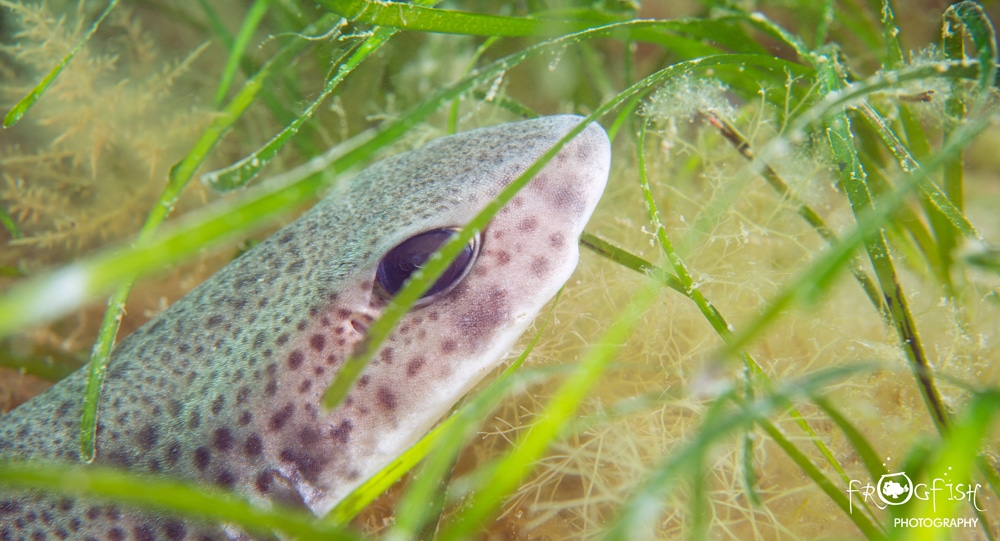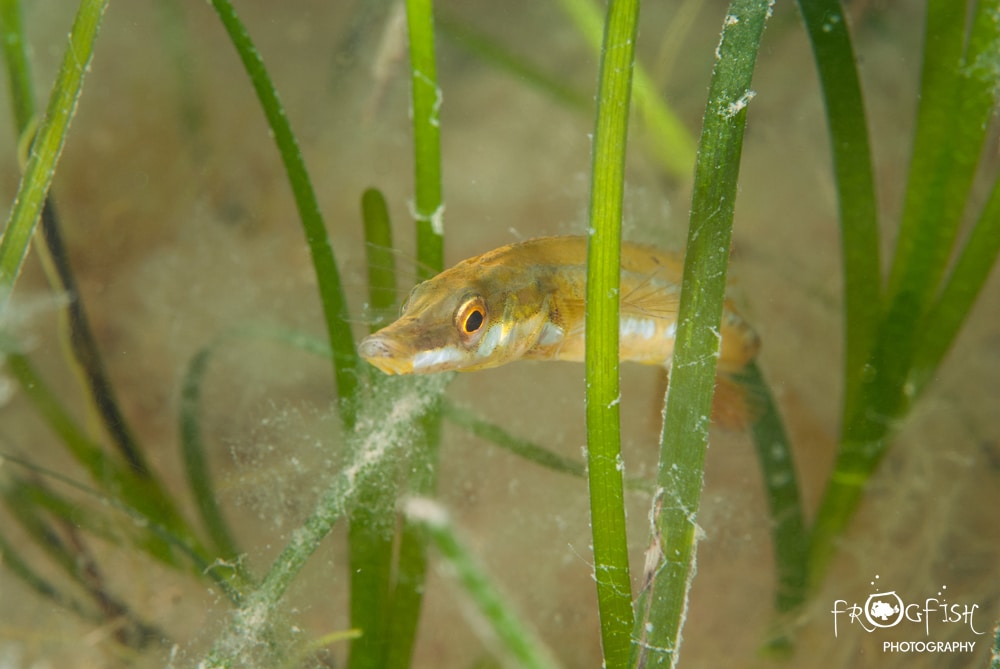News
New eco-moorings project off Plymouth replacing damaging anchorage

 Princess Yachts Collaborate with Marine Conservation Society to Support National Marine Aquarium to Install Eco-Moorings to Protect Delicate Marine Ecosystem
Princess Yachts Collaborate with Marine Conservation Society to Support National Marine Aquarium to Install Eco-Moorings to Protect Delicate Marine Ecosystem
Princess, together with the Marine Conservation Society (MCS) and the National Marine Aquarium (NMA) have replaced old moorings with new eco-friendly ones that have been shown to allow environmentally important seagrass beds to recover, after damage caused by traditional mooring methods. The Princess funded project spans three years with ‘helical’ mooring installations in Cawsand Bay and Kingsand Bay, Plymouth.
The ‘helical’ moorings project is being funded by Plymouth-based Princess Yachts in a joint, three year venture with the Marine Conservation Society, and the National Marine Aquarium.
Seagrass meadows are a crucial part of the marine ecosystem – they stabilise seabeds, lock in CO2 more efficiently than rainforests, host larval and juvenile fish and seahorses, and are great breeding grounds for cuttlefish and sharks in UK seas. But they are extremely vulnerable when traditional moorings using chains that drag along the seabed through the seagrass are used.

The helical devices simply screw (like a large corkscrew) into the sandy seabed. They are 2m long with one or two large rotational blades (about 30cm across) that turn into the sediment. This locks the device into place. It then has a chain link that is lifted to the surface by small buoys to a larger mooring buoy. This means that the actual footprint on the seabed is only 40cm across therefore much smaller than that of a conventional mooring.
Dr Jean-Luc Solandt, MCS Principal Specialist Marine Protected Areas, says: “We’ve installed five ‘helical’ moorings that are screwed into the seabed. These are then attached to a chain, called the NMA Stirling Eco Mooring, that rises up above the seabed with buoys attached along its length to a large surface mooring buoy which has a rope attached to it. The chain that rises to the surface from the seabed therefore never touches or scrapes around the seagrass bed itself, and will likely result in recovery of seagrass.”
“We believe we’ll be protecting something like 0.5km square of seagrass bed with our project in the first year. We hope to cover the entire bed within three years, if the project proves successful,” says Dr Solandt. “The seagrass bed is considered to currently be in ‘unfavourable condition’ by Natural England. If the project is successful we hope it will lead to other areas using this cheap and practical technology where there has been animosity between local conservationists and boat owners over calls for anchor bans. These eco options offer a potential solution to future stand-offs.”
Kiran Haslam, Marketing Director, Princess Yachts said “Three years ago we set in place an initiative in marine conservation, and every year we renew and strengthen our commitment to MCS. The delicate seagrass eco system is now in need of our attention and Cawsand Bay lies at the mouth of the river Tamar, a stone’s throw from our home city of Plymouth. We’re proud to be able to support this pioneering initiative that will give the seagrass beds an opportunity to repair themselves.”
For more information about the Marine Conservation Society visit their website by clicking here.
Gear News
Introducing the TR-80, IR-50 and CS-30 Regulators from DYNAMICNORD

Whether you are a beginner or a professional diver – with the three new main regulators from DYNAMICNORD, everyone will find their favourite regulator. They all look super stylish.
Excellent performance with the TR-80
Quality and performance are the be-all and end-all for regulators. It is not for nothing that the TR stands for Tec Reg. The innovative design of the TR-80 guarantees absolute reliability – even in ice-cold waters.

Perfect breathing effort at 0.8 J/l / certified for diving in waters below 10 degrees / structural design made of solid brass for best cold protection / membrane-compensated design with dry seal of the first stage / reduced exhalation effort thanks to optimized exhalation membrane and bubble deflector / adjustable Venturi (dive/predive) and adjustment knob for individual inhalation comfort / innovative design of the front cover prevents free-flow in strong currents or when diving with scooters / design made of sandblasted brass, matt chrome finish / 2 HP and 4 LP outlets / mouthpiece made of high-quality, anti-allergic silicone for maximum comfort.


Amazing underwater adventures with the IR-50
The IR-50 is the top regulator for advanced and experienced divers. Natural breathing is the essence of this regulator.

Ideal breathing effort at 0.8 J/l /certified for diving in waters below 10 degrees / compensated membrane / adjustable venturi (dive/predive) and adjustment knob for individual inhalation comfort/ outlet valve and deflector for minimum exhalation effort and reduction of bubbles on the face / design made of sandblasted brass, matt chrome finish / 2 HP and 4 NP outlets / mouthpiece made of high-quality, anti-allergic silicone for maximum comfort.


The Workhorse – our CS-30
For diving centres and diving beginners – the workhorse stands for strong construction, reliability and robustness. Perfect for your training.

Optimal breathing effort at 0.8 J/l /recommended for diving in waters above 10 degrees / non-compensated piston / adjustable venturi (dive/predive) / outlet valve and deflector for minimum exhalation effort and reduction of bubbles on the face / design made of sandblasted brass, matt chrome finish / 1 HP and 3 NP outlets / mouthpiece made of high-quality, anti-allergic silicone for maximum comfort.


Octopus OP-30
The OP-30 is the ideal addition to all DYNAMICNORD regulators. It is identical in construction to the CS-30.

The TR-80, IR-50, CS-30 (DIN & INT) regulators and the Octopus OP-30 are available from DYNAMICNORD dealers and in the online store.
DYNAMICNORD – Your Outdoor Companion.
Marine Life & Conservation
Paul Watson Released as Denmark Blocks Japan’s Extradition Bid

Renowned anti-whaling activist Paul Watson has been released from custody in Greenland after spending five months in detention. Denmark’s Justice Ministry rejected Japan’s request for his extradition, citing insufficient guarantees that his time already served in custody would be credited against any potential sentence.
The 74-year-old Canadian-American was arrested on July 21 in Nuuk, Greenland’s capital, when his ship docked to refuel. His arrest was based on a 2012 Japanese warrant related to a 2010 encounter in Antarctic waters. Japan alleged Watson obstructed operations and caused damage to a whaling research ship during efforts to disrupt illegal whaling. Watson has consistently denied these claims, maintaining his commitment to marine conservation.
Denmark, which oversees extradition matters for Greenland, concluded that while the legal conditions for extradition were met, the lack of assurances from Japan regarding time-served credit made extradition untenable.
In a video shared by his foundation, Watson expressed gratitude and relief, saying, “After five months, it’s good to be out… and good to know they’re not sending me to Japan.” He added that the most difficult part of his time in custody was being separated from his two young sons.
Watson is a pioneering figure in marine conservation, known for founding the Captain Paul Watson Foundation in 2022 after decades of activism with the Sea Shepherd Conservation Society. His bold efforts to defend marine life have earned him widespread support, including from celebrities and conservationists. His work has also been featured in the acclaimed reality TV series Whale Wars.
Watson’s lawyer, Jonas Christoffersen, praised the decision, stating, “We are happy and relieved that Paul Watson is now free.” He added that Watson is eager to reunite with his family and continue his vital work.
The arrest occurred while Watson’s vessel, the M/Y John Paul DeJoria, was en route to the North Pacific with a team of 26 volunteers to intercept a Japanese whaling ship. His foundation described the arrest as politically motivated and emphasized that Watson’s actions were focused on ending illegal whaling practices.
Japan resumed commercial whaling in 2019 after leaving the International Whaling Commission, asserting that whale meat is a cultural tradition. Conservationists, however, continue to challenge these practices, highlighting their impact on marine ecosystems.
Despite the challenges, Watson remains steadfast in his mission to protect marine life and bring attention to whaling practices. His dedication to ocean conservation has made him a globally respected advocate for the environment.
-

 News2 months ago
News2 months agoIconic SS United States to become the World’s Largest Artificial Reef
-

 News3 months ago
News3 months agoBook Review – 52 Assignments: Underwater Photography
-

 Gear News3 months ago
Gear News3 months agoDYNAMICNORD – New German diving brand enters the British market
-

 News3 months ago
News3 months agoExploring Cenote El Pit: A Diver’s Dream
-

 Gear News3 months ago
Gear News3 months agoTry BARE drysuits (and maybe even win one!) this Friday with Sea & Sea at North West Dive Fest
-

 Marine Life & Conservation3 months ago
Marine Life & Conservation3 months agoBook Review: Coral Triangle Cameos
-

 Blogs2 months ago
Blogs2 months agoDive the Egyptian Red Sea this Autumn with Regaldive
-

 News3 months ago
News3 months ago2024 Ocean Art Underwater Photo Competition Announced















